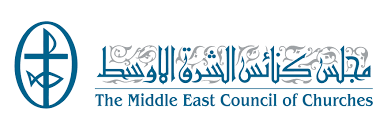DSPR: Stories from Gaza, Lebanon, and Jordan
 The services of the Department of Service for Palestinian Refugees (DSPR) of the Middle East Council of Churches (MECC) aim at enabling people to better organize their lives so that they can live with dignity in spite of the various difficulties and constraints that seek to inhibit them from “normal” living. Over 70,000 Palestinians benefit from the health clinics in DSPR areas of operation.
The services of the Department of Service for Palestinian Refugees (DSPR) of the Middle East Council of Churches (MECC) aim at enabling people to better organize their lives so that they can live with dignity in spite of the various difficulties and constraints that seek to inhibit them from “normal” living. Over 70,000 Palestinians benefit from the health clinics in DSPR areas of operation.
DSPR shares reflections on its work, written by Damaris, appointed by Bread for the World (Germany) to work with DSPR, following visits she made recently to Gaza, Lebanon, and Nazareth.
On her time in Gaza, Damaris writes, “I was excited as I received permission from the Israeli side to leave for Gaza, one day before the planned trip. Finally, I get to know the region that is said to be the largest prison in the world. I had no idea what it was like to live there. In a place where 2 million people cannot move freely, where 1.2 million refugees live, where unemployment is 45 percent and where the people have only 8 hours access of electricity a day.” Click here to continue reading….
Following her visit in Beirut and beyond, she wrote, “On a visit to Lebanon between July 22 to July 29, 2019 I had the opportunity to explore the work done by the Department of Service to Palestinian Refugees in Lebanon, JCC, and to visit the Middle East Council of Churches in Beirut.” Click here to continue reading….
And in Nazareth, she writes, “In the far north of Israel there are many small villages, which are settled separately by faith. There are Christian, Muslim, Jewish and Druze villages. And only a few cities are religiously mixed. For me as a German, something new and unusual that people here identify so strongly with their religion.” Click here to continue reading….
New, after a visit from Jordan (Oct. 17), Damaris writes, “On a visit to Jordan in October 2019 I had the opportunity to explore the work done by the Department of Service to Palestinian Refugees in Jordan and getting to know their excellent work. A special highlight was the visit of the Jerash Camp. I feel honored to get to know the occupants of the camp. Jerash camp was set up as an “emergency” camp in 1968 for 11,500 Palestine refugees and displaced persons who left the Gaza Strip as a result of the 1967 Arab-Israeli war.” Continue reading….
